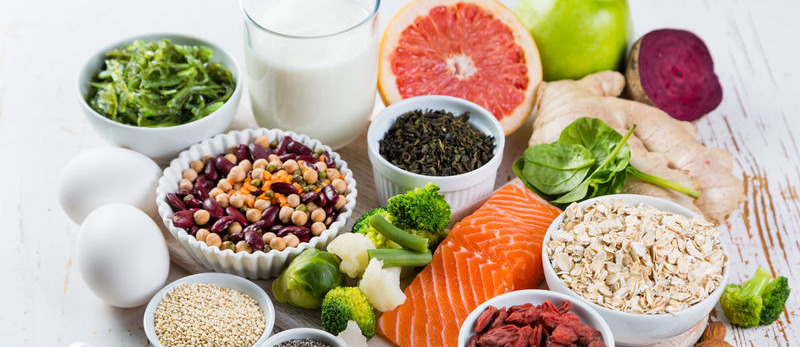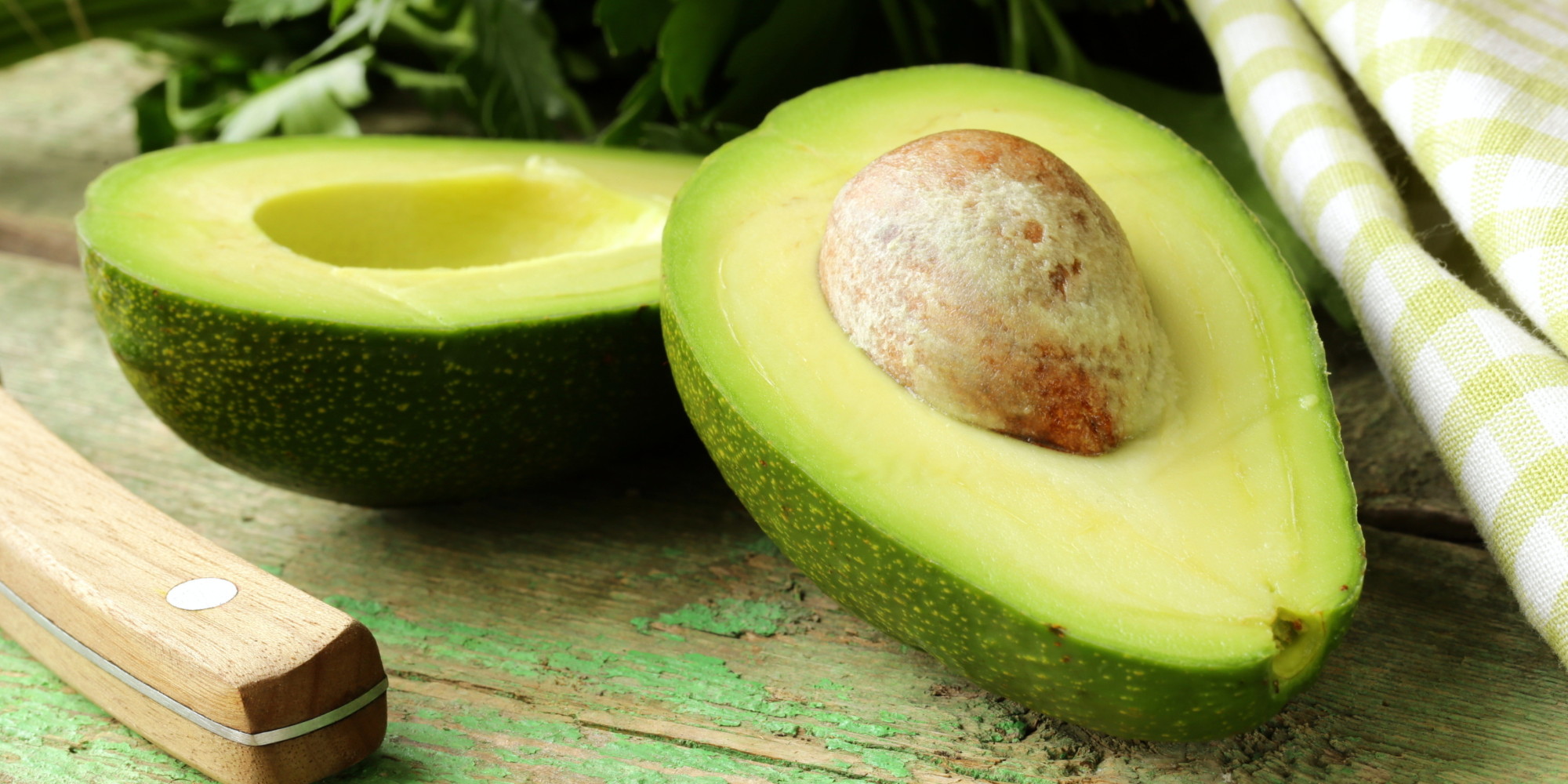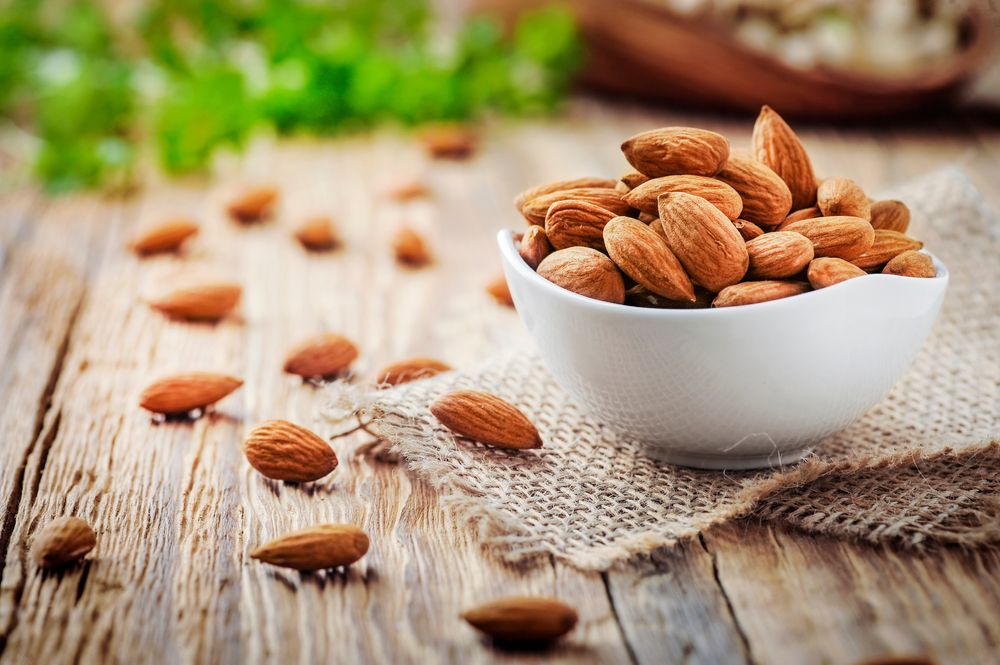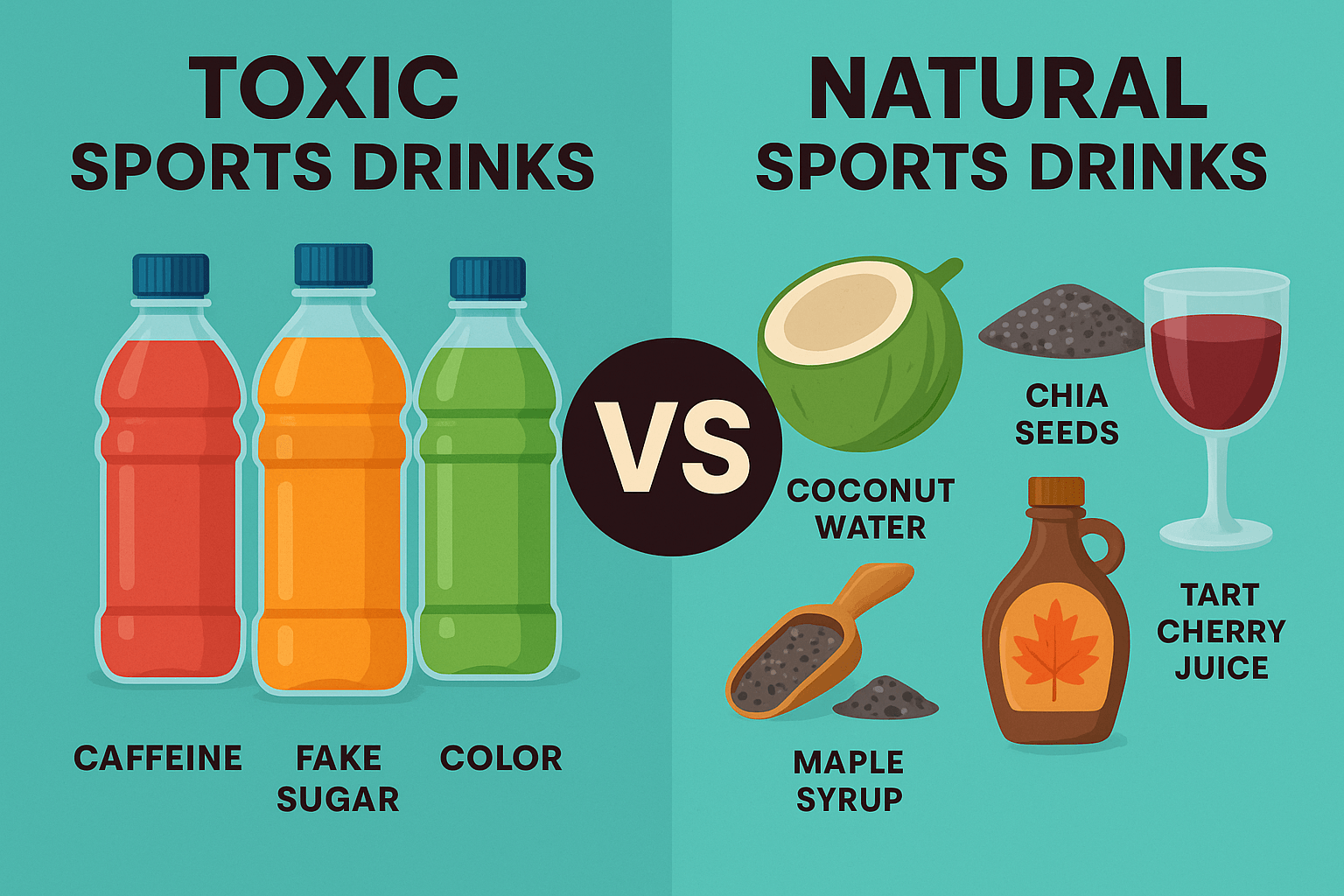Exercise Daily – Superfoods, the buzzword of the health and nutrition world. They promise to make us healthier, more energetic, and maybe even live longer. But it’s time to separate fact from fiction in a world filled with superfood claims. Are all superfoods created equal? Which ones should you truly incorporate into your diet for maximum benefits? In this article, we’ll unveil the truth about superfoods, diving into the science behind them and helping you make informed choices. So, let’s embark on this journey of discovery and find out which superfoods are worth eating.
What Are Superfoods, Anyway?
Superfoods are the buzzword in the world of nutrition, but what exactly makes them so special? Let’s dive into the basics and uncover the truth about these nutrient-packed foods.
1. What Are Superfoods?
Superfoods are foods exceptionally rich in essential nutrients, such as vitamins, minerals, antioxidants, and phytochemicals. These nutrients provide various health benefits, making superfoods valuable to your diet.
2. The Nutrient Density Factor
One key characteristic of superfoods is their high nutrient density. This means they contain a significant amount of nutrients concerning their calorie content. In other words, you get more bang for your buck regarding nutrition.
3. Common Nutrients in Superfoods
Superfoods can be rich in a variety of essential nutrients. Some of the most common nutrients found in these foods include:
- Vitamins: Superfoods are often abundant in vitamins like A, C, and K, vital for various bodily functions.
- Minerals: Superfoods may contain essential minerals such as calcium, magnesium, and iron, which support bone health and oxygen transport.
- Antioxidants: Many superfoods are packed with antioxidants that help combat oxidative stress and reduce the risk of chronic diseases.
- Phytochemicals: These natural superfood compounds have been linked to numerous health benefits, including anti-inflammatory and anti-cancer properties.

Kale: The Green Powerhouse
Often hailed as a nutritional powerhouse, Kale has earned its place among the elite group of superfoods.
1. The Nutritional Marvel: Kale
Kale is a leafy green vegetable that’s bursting with essential nutrients. It’s no wonder it’s become a staple in health-conscious kitchens worldwide.
2. Rich in Vitamins and Minerals
One of the standout features of kale is its impressive vitamin and mineral content. Here’s what you’ll find in a serving of this green giant:
- Vitamin A: Essential for eye health and a robust immune system.
- Vitamin C: An antioxidant that supports skin health and boosts the immune system.
- Vitamin K: Critical for blood clotting and bone health.
- Calcium: Necessary for strong bones and teeth.
- Potassium: Helps regulate blood pressure.
3. Antioxidant Power
Kale is also renowned for its high antioxidant content. Antioxidants help combat oxidative stress, which can lead to chronic diseases and premature aging. The antioxidants in kale, such as beta-carotene and quercetin, protect against free radicals.
4. Fiber for Digestive Health
A diet rich in kale means you’re getting a good dose of dietary fiber. Fiber is essential for a healthy digestive system and can aid in weight management by promoting a feeling of fullness.
5. Versatility in the Kitchen
The beauty of kale lies in its versatility. You can use it in various dishes, such as:
- Salads: Kale’s robust texture makes it an excellent base for salads. Just remember to massage it with a bit of olive oil to soften the leaves.
- Smoothies: Add a handful of kale leaves to your morning smoothie for an extra nutrient boost.
- Sautéed or Steamed: Kale can be lightly sautéed with garlic and olive oil or steamed as a nutritious side dish.
- Kale Chips: Bake kale leaves with olive oil and seasoning for a crunchy and healthy snack.
Blueberries: Nature’s Antioxidant
Blueberries, often called “nature’s antioxidant,” are small but mighty in their health benefits.
1. The Antioxidant Powerhouse: Blueberries
Blueberries are more than just delicious; they are packed with many health-boosting compounds.
2. A Bounty of Antioxidants
At the heart of blueberries’ superfood status lies their impressive antioxidant content. Antioxidants are essential for protecting the body against oxidative stress, which can lead to various chronic diseases and aging. Blueberries are particularly rich in antioxidants called anthocyanins, which give them their deep blue color.
3. Brain Health and Memory
Research suggests that the antioxidants in blueberries may help improve brain function and memory. Regular consumption of these berries has been linked to slower cognitive decline as we age.
4. Heart Health
Blueberries support heart health by reducing the risk factors for heart disease. They can help lower blood pressure and improve cholesterol levels.
5. Digestive Health
Blueberries are an excellent dietary fiber source, promoting a healthy digestive system. Fiber aids in regular bowel movements and may reduce the risk of digestive disorders.

Quinoa: The Protein-Packed Grain
Quinoa, often called the “protein-packed grain,” has earned its superfood status for good reason.
1. Quinoa: A Nutritional Powerhouse
Quinoa is far from your typical grain. Its exceptional nutrient profile sets it apart, rendering it a valuable and versatile addition to any diet.
2. Complete Protein Source
Quinoa distinguishes itself with its exceptional protein content. It houses all nine essential amino acids, classifying it as a complete protein source. Such attributes make quinoa an outstanding choice for vegetarians and vegans seeking to fulfill their protein requirements.
3. Rich in Fiber
Quinoa, much like avocado, stands as a commendable source of dietary fiber. The presence of fiber is indispensable for sustaining digestive well-being since it facilitates the maintenance of regular bowel movements and encourages a sensation of fullness, which in turn proves beneficial for effective weight management.
Chia Seeds: Tiny Nutrient Powerhouses
Chia seeds, often described as “tiny nutrient powerhouses,” have recently gained immense popularity.
1. Chia Seeds: Nature’s Tiny Wonders
Don’t let their small size fool you; chia seeds pack a remarkable nutritional punch.
2. Omega-3 Fatty Acids
Chia seeds are one of the richest plant-based sources of omega-3 fatty acids, specifically alpha-linolenic acid (ALA). Omega-3s are known for their anti-inflammatory properties and are crucial for heart and brain health.
3. Rich in Fiber
Even modest chia seeds serve a noteworthy dietary fiber dose. This fiber content proves to be highly beneficial by supporting digestion, inducing a sense of satiety, and regulating blood sugar levels.
4. Protein Power
Chia seeds shine as a top-notch source of plant-based protein. They are enriched with essential amino acids, rendering them a valuable addition to the diets of both vegetarians and vegans.
5. Antioxidants Galore
Chia seeds are a treasure trove of antioxidants, which are vital in shielding the body from oxidative stress. This protection, in turn, can help diminish the risk of chronic diseases.
6. Hydration and Satiety
When chia seeds come into contact with liquid, they absorb and swell, forming a gel-like consistency. This property can help keep you hydrated and feel full, aiding in weight management.

Salmon: Omega-3 Rich Fish
Salmon, often hailed as an “omega-3 rich fish,” is a culinary delight and a nutritional powerhouse.
1. Salmon: The Omega-3 Marvel
Salmon is not your ordinary fish; it’s a nutritional treasure trove, primarily due to its high omega-3 fatty acid content.
2. Omega-3 Fatty Acids
Salmon contains omega-3 fatty acids, particularly eicosapentaenoic acid (EPA) and docosahexaenoic acid (DHA). These essential fatty acids play a vital role in various aspects of health.
3. Heart Health
Consuming salmon regularly is linked to a reduced risk of heart disease. Omega-3s in salmon help lower blood pressure, reduce triglycerides, and improve overall heart function.
4. Brain Boost
DHA, a specific type of omega-3 fatty acid abundant in salmon, promotes brain health. Additionally, it actively supports cognitive function and potentially mitigates the risk of age-related cognitive decline.
5. Inflammation Reduction
The omega-3 fatty acids found in salmon pack a potent punch when it comes to anti-inflammatory properties. This makes salmon an excellent dietary choice for individuals with inflammatory conditions such as arthritis.
6. Protein and Nutrient-rich
Salmon is also a superb source of high-quality protein, vitamins, and minerals. It contains vitamin D, B12, selenium, and iodine, all essential for overall well-being.
Avocado: Healthy Fats and More
Avocado, often celebrated for its creamy texture and healthy fats, is more than just a delicious addition to your favorite dishes. Additionally, in this segment, we’ll unveil the nutritional wonders of avocados and explore how they can effortlessly elevate your diet.
1. Avocado: The Nutrient-Rich Gem
Avocado is a unique fruit that stands out for its exceptional nutrient content, particularly its healthy fats.
2. Healthy Fats
Avocado is rich in monounsaturated fats, particularly oleic acid, also found in olive oil. These heart-healthy fats have numerous health benefits, including reduced inflammation and improved cholesterol levels.
3. Fiber for Digestive Health
Avocado is an excellent source of dietary fiber, which plays a pivotal role in maintaining a healthy digestive system. Moreover, dietary fiber contributes to regular bowel movements and fosters a sense of fullness, thereby proving advantageous for effective weight management.

Spinach: Popeye’s Favorite Green
Spinach, famously known as “Popeye’s favorite green,” is more than just a cartoon character’s power food.
1. Spinach: A Nutritional Powerhouse
Spinach is a leafy green that packs a punch for essential nutrients.
2. Rich in Vitamins
Spinach is abundant in vitamins, including:
- Vitamin A: Crucial for eye health and a strong immune system.
- Vitamin C: An antioxidant that supports skin health and boosts the immune system.
- Vitamin K: Vital for blood clotting and bone health.
- Folate: Important for DNA synthesis and cell growth.
- Vitamin B6: Necessary for brain development and function.
3. Minerals Galore
Spinach is also rich in essential minerals, such as:
- Iron: Critical for transporting oxygen in the blood.
- Calcium: Important for bone and teeth health.
- Magnesium: Essential for muscle and nerve function.
- Potassium: Helps regulate blood pressure.
4. Antioxidant Power
Spinach contains various antioxidants, which help protect your cells from damage caused by free radicals. Additionally, these antioxidants reduce the risk of chronic diseases and slow aging.
5. Fiber for Digestive Health
Spinach is a good dietary fiber source, promoting a healthy digestive system and regular bowel movements.
6. Versatile in the Kitchen
Spinach’s versatility makes it easy to incorporate into your meals:
- Salads: Use spinach as the base for salads, adding color and nutrition.
- Smoothies: Blend spinach into your morning smoothie for an extra nutrient boost.
- Cooked Dishes: Sautéed or steamed spinach can be a delightful side dish or a flavorful addition to various recipes.
Almonds: A Nutrient-Rich Snack
Almonds, often touted as a “nutrient-rich snack,” are a delicious treat and a nutritional powerhouse.
1. Almonds: Nature’s Nutrient-Rich Gems
Almonds are small but big on nutrition, making them a popular choice for a satisfying and healthful snack.
2. Healthy Fats for Heart Health
Almonds boast a wealth of monounsaturated fats linked to various heart-healthy advantages. Additionally, these fats play a role in lowering levels of bad cholesterol and reducing the risk of heart disease.
3. Protein and Fiber Powerhouse
Almonds are a superb source of both protein and dietary fiber. Additionally, A handful of almonds can help curb your hunger and keep you feeling full, making them an excellent choice for weight management.
4. Packed with Vitamins and Minerals
Almonds are a nutrient-dense snack, providing essential vitamins and minerals, including:
- Vitamin E: An antioxidant that helps protect cells from damage.
- Magnesium: Important for muscle and nerve function, bone health, and blood glucose control.
- Calcium: Vital for bone and teeth health.
- Iron: Critical for transporting oxygen in the blood.
5. Antioxidant Benefits
Almonds contain antioxidants, such as vitamin E and flavonoids, which can help neutralize harmful free radicals in the body, reducing the risk of chronic diseases.

Turmeric: The Golden Spice
Turmeric, often referred to as “the golden spice,” is not just a staple in many cuisines; it’s also celebrated for its remarkable health benefits. In this segment, we’ll unveil the secrets of turmeric’s incredible properties and explore how you can effortlessly incorporate this vibrant spice into your daily diet.
1. Turmeric: Nature’s Golden Gift
Turmeric is more than just a spice; it’s a centuries-old remedy and a culinary treasure.
2. Curcumin: The Active Compound
Turmeric’s enchantment can be traced to its active compound, curcumin. Furthermore, curcumin possesses remarkable attributes as a potent anti-inflammatory and antioxidant agent. Consequently, turmeric has garnered extensive attention in scientific research due to its potential health benefits.
3. Anti-Inflammatory Powerhouse
Chronic inflammation is a root cause of many diseases, and curcumin’s anti-inflammatory properties can help combat this issue. It may be particularly beneficial for conditions like arthritis.
4. Antioxidant Protection
Turmeric’s curcumin’s power lies in its potent antioxidant role. Additionally, It actively combats and neutralizes harmful free radicals within the body, providing essential protection to cells and preventing damage.
5. Brain Health
Several studies have hinted at the possibility that curcumin, the active compound found in turmeric, might have the ability to improve brain function and potentially lower the risk of neurodegenerative disorders such as Alzheimer’s disease.
FAQs – Truth About Superfoods: Which Ones Are Actually Worth Eating?
Q: Are superfoods a magic solution to all health problems?
No, superfoods are not a magic cure-all. While they offer valuable nutrients, they should be part of a balanced diet, and other lifestyle factors also play a significant role in overall health.
Q: Can I eat superfoods every day?
Yes, many superfoods can be enjoyed daily, but it’s essential to diversify your diet to ensure you get a broad range of nutrients.
Q: Are superfoods expensive?
Some superfoods can be pricey, but there are also affordable options available. Consider your budget and prioritize superfoods that align with your nutritional goals.
Q: Can I replace my regular meals with superfoods?
It’s not advisable to replace balanced meals with superfoods exclusively. Superfoods should complement your diet rather than replace it.
Q: Are there any side effects of consuming superfoods?
While superfoods offer numerous benefits, some individuals may be allergic or sensitive to certain superfoods. It’s essential to listen to your body and consult a healthcare professional if you have concerns.
Conclusion
Superfoods are undeniably nutritious and can play a valuable role in your diet. However, viewing them as part of a broader approach to healthy eating is essential. Additionally, Incorporating various nutrient-rich foods into your meals is the key to reaping the full benefits of a balanced diet. Its rich array of vitamins, minerals, and antioxidants makes it an excellent addition to any diet. So, go ahead and indulge in kale’s vibrant green goodness, and let it elevate your meals to a new level of nutrition and flavor.





